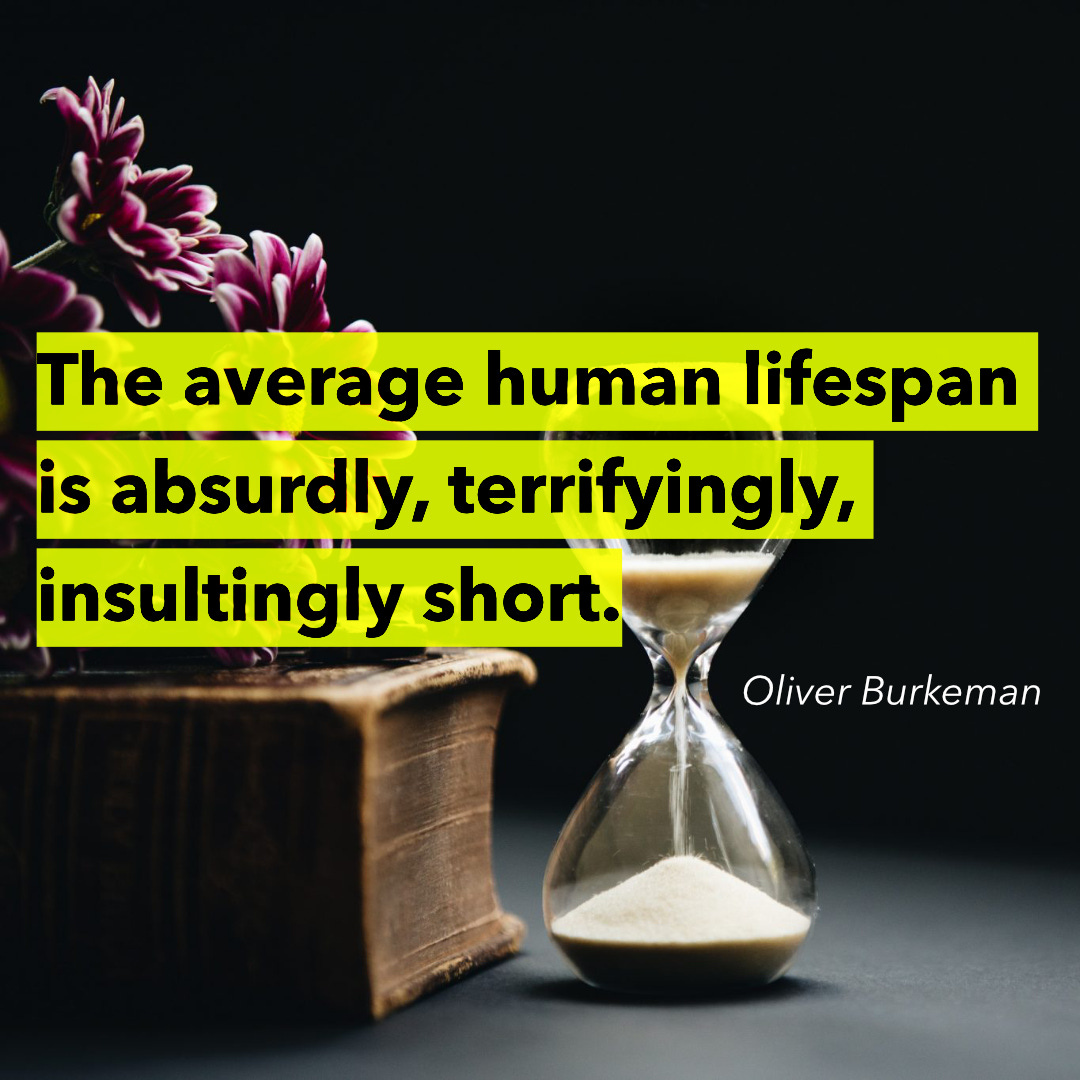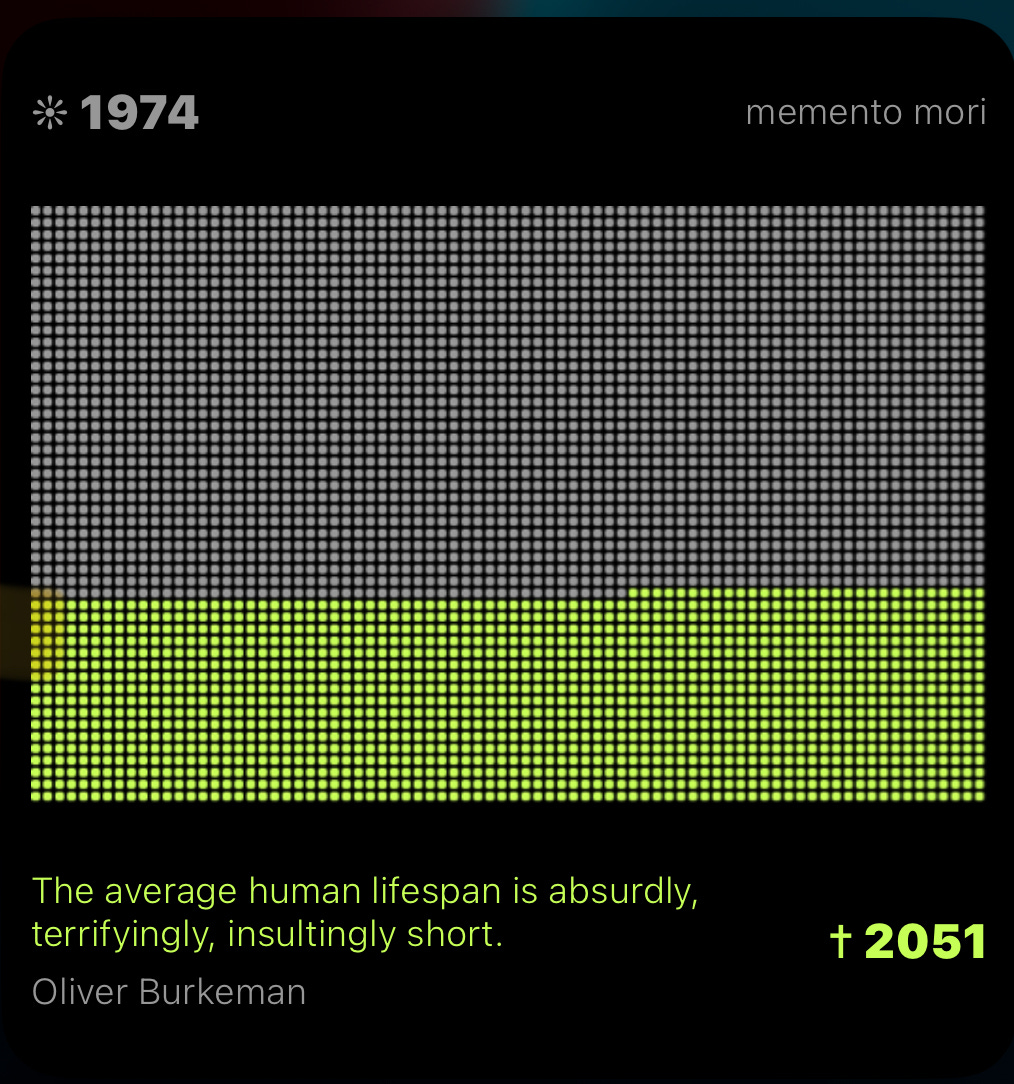Set Priorities
A reflection on our absurdly, terrifyingly, insultingly short lifespan and the art of setting priorities.
Evolution has endowed humans with the astonishing ability to anticipate future states with our minds, commonly known as planning. This ability, combined with our linguistic skills, which enable us to plan and execute things together, is a great blessing for humanity. Yet, for the individual, it can also be a curse. The ability to think in scenarios also gives rise to a plethora of demands, wishes, and conflicts. It is never enough; there is always more to try and achieve. The French mathematician and philosopher Blaise Pascal summed up this tragedy of human existence aptly and somewhat resignedly: “All of humanity's problems stem from man's inability to sit quietly in a room alone.”1
The complaint about the brevity of life against the backdrop of our endless possibilities, wishes, and demands is as old as humanity itself. However, thinkers and philosophers seem to be particularly affected by this problem. Seneca, for example, starts his book “On the Shortness of Life”2 with this quote:
Most human beings complain about the meanness of nature, because we are born for a brief span of life, and because this spell of time that has been given to us rushes by so swiftly and rapidly that with very few exceptions life ceases for the rest of us just when we are getting ready for it.
Since ancient times, the gap between conceivable possibilities and the time available for them has widened for more and more people. Modern and post-modern humans face almost infinite possibilities and are entrusted with the once divine task of giving meaning to their bare existence. At first glance, the roughly 4,000 weeks available to each of us on average seem like a bad joke from a cruel creator, as Oliver Burkeman pointedly stated:3 “The average human lifespan is absurdly, terrifyingly, insultingly short.”
We can envision a lot in theory and hope for a lot, but we can only put so little of it into practice. No matter how well we organize ourselves, how perfectly our time management systems work, how early we get up, or which morning routine we use, we can only ever implement a tiny fraction of the possibilities. However, exactly this natural limitation of our capacity makes our decisions meaningful; if we had infinite time, our choices wouldn't matter much. The selected option gains significance only when the one yes inevitably means a multitude of no's. “The quality of our yeses is dictated by the quantity of our noes,” Greg McKeown aptly put it in his podcast.4
Therefore, time management and productivity cannot aim at getting everything done. Instead, it must be about making deliberate decisions. As a decision to do something always confronts us with opportunity costs and ultimately our finiteness, we only make it when it has become inevitable. We fill our days until it hurts, and only in this overload situation do we dare to turn down tasks and opportunities. This is why Cal Newport sees most knowledge workers permanently in a borderline area of overload:5 “They instead exist in a liminal zone: a place where they toil, say, for the sake of fixing a specific number, twenty per cent more than they really have time for. This extra twenty per cent provides just enough overload to generate persistent stress. There's always something late, always a message that can't wait until the next morning, and always a nagging sense of irresponsibility during any moment of downtime. Yet the work remains below unsustainable pain that would force a change.”
So we can say no but only dare to with a pure conscience when overloaded. In light of Oliver Burkeman's very liberating thought that we won't get the vast majority of things done in our lives anyway, twenty percent more or less doesn't make a significant difference in the long term, even more so if it is used so indiscriminately, as happens every day in our calendars and mailboxes. What makes a difference is choosing wisely. We need a certain amount of space and a buffer to make these choices deliberately. If we start to select when we are already on the verge of this painful overload, this choice is arbitrary because we are not guided by priorities but simply reject options due to overflow.
Our optimal utilization is, therefore, not twenty percent overload, even if that feels so pleasingly “busy,” but rather eighty or eighty-five percent. As a mathematician, Gunter Dueck derives this limit from queueing theory and comes to this recommendation in summary:6 “Anything over eighty-five percent utilization leads to chaos and even disaster. This is because such a high workload generates new work through nuisance and changes in priorities due to waiting emergencies so that the workload rises above one hundred percent and causes the system to collapse.”
However, the 4,000 weeks allotted to us are not nothing; they are a miracle in themselves; if used wisely, we can achieve a great deal within them. Time management does not mean squeezing as much as possible into the time available time (efficiency) but ultimately saying yes to the right things and consequently saying no to many others (effectiveness). Unfortunately, our ability to mentally anticipate future conditions makes many things seem attractive and desirable, so every choice comes with high opportunity costs. But precisely because our time is so frustratingly limited, we must not sit paralyzed, like a rabbit in front of a snake, but must make a good choice.
To make this choice amidst the daily chaos, we should heed the practical advice that Warren Buffett is said to have once given his pilot regarding how to set priorities in life. Buffet advised him to list twenty-five things he wanted to achieve and rank them in descending order of importance. The top five would then form the priorities according to which he should organize his life. However, he should not treat the other twenty as subordinate priorities that he could tackle if the opportunity arose but should avoid them at all costs. On the one hand, these other ambitions are not important enough to form the core of his life, but on the other hand, they are seductive enough to distract him from the essential things.7
PS. If you happen to have an iPhone, you can add some “memento mori” to your home screen with this little Scriptable-widget I created; see instructions on GitHub:
Table of Contents
All links lead to the parts that are already published here on Substack.
Set Priorities
Enduring Dissonance
Doing Your Best
The next chapter will follow next Friday. In case you want to read on as soon as possible, the book is available on Amazon in many countries as hardcover, paperback, and for your Kindle. (also on Leanpub). And all my German readers can get the German edition in every book store.
Blaise Pascal and J.F. Kleuker, Gedanken (bei Johann Heinrich Cramer, 1777), 221.
Lucius Annaeus Seneca and Charles D. N. Costa, On the Shortness of Life, Great Ideas 1 (London: Penguin Books, 2004), 1.
Oliver Burkeman, Four Thousand Weeks: Time and How to Use It (Random House, 2021), 3.
Greg McKeown, “Identifying Your Circle of Competence with Kyle Westaway (Part 2),” The Greg McKeown Podcast, accessed September 1, 2023, https://gregmckeown.com/podcast/episode/identifying-your-circle-of-competence-with-kyle-westaway-part-2/.
Cal Newport, “Why Do We Work Too Much?,” The New Yorker, August 30, 2021, https://www.newyorker.com/culture/office-space/why-do-we-work-too-much.
Gunter Dueck, Schwarmdumm: so blöd sind wir nur gemeinsam (Frankfurt am Main: Campus-Verl, 2015), 61.
Burkeman, Four Thousand Weeks, 77f.



